Introduction
Chickenpox is the primary infection caused by the varicella-zoster virus. It is an acute, highly infectious disease most commonly seen in children under 10 years old. Chickenpox is usually a mild, self-limiting illness and most healthy children recover with no complications. The illness with chickenpox usually lasts about seven to ten days.
Chickenpox in Child
Chickenpox in Adult
The rash usually starts on the chest, and most spots appear on the chest and head (including in the hair), although some children and adults can have spots all over the body (except the palms of the hands and soles of the feet). The spots start as red, itchy lumps, which then become blisters. The top comes off of the blister and watery fluid escapes. Then a crust forms on the spot. This crust takes about five days to fall off. The spots often come in waves for several days so that there will be new lumps, blisters and crusting sores on the skin at the same time.
Stages of Chickenpox
History behind the chickenpox
In the late 800’’s early 900’s AD, Muhammad ibn Zakariya Razi, also known as Razi, recorded some of the first known information on chicken pox and noted the differences between measles and small pox. Later in the 1500’s Giovanni Filippo was able to give a more detailed description of chicken pox. Studies were done in 1875 by Rudolf Steiner, which proved that a chicken pox infection was contagious.
Von Bokay suggested the connection between shingles and chicken pox in 1909. It wasn’t until the 1920’s/1930’s that studies confirmed the connection when children inoculated with zoster vesicles (shingles virus) came down with chicken pox.
The chicken pox vaccine has been around for decades. At one time it was accepted unconditionally, but recently parents are making informed decisions about vaccines, including the chicken pox vaccine. In 1972, Takahashi developed a live attenuated VZV (varicella-zoster virus) vaccine to prevent chicken pox.
Prevalence of chickenpox
India
Chickenpox is found both in endemic and epidemic forms in India. Chickenpox is relatively mild in healthy children, but life threatening in immuno-compromised population such as children, pregnant women and newborn are more susceptible. It is highly contagious and spread through droplet infections. Cases of chickenpox are found throughout the year. However, their number is more during the transition from winter to summer, especially after the rainy season. As it is a highly contagious disease with a secondary high rate of over 90%. Hence, crowded localities hardest hit.2,3 Therefore, chances of disease transmission are more in school, colleges, urban slum areas, etc.
United States
Varicella occurs throughout the year in temperate regions, but the incidence typically peaks in the months of March through May. According to national seroprevalence data from the pre-vaccine era, greater than 95 percent of persons in the United States acquired varicella before 20 years of age, and fewer than 2 percent of adults were susceptible to infection. Prior to 1995 the Centers for Disease Control and Prevention (CDC) estimated the yearly incidence of chickenpox in the United States at approximately four million cases, with nearly 11,000 admissions and 100 deaths.
What causes chickenpox?
Chickenpox is caused by a virus, the varicella-zoster virus.
How chickenpox does spreads?
- The infection is spread when the person sneezes or coughs, or when someone touches the fluid in the blisters. It can also be spread by touching something that has touched the fluid from the blisters (e.g. a dressing which covered the sore).
- Chickenpox can be caught from the fluid in the blisters of someone with shingles, though this is rare.
- The person with chickenpox is contagious from the beginning of the illness (up to two days before the spots appear) until about five days after the first spots appear. So long as there are no new blisters or moist crusts on spots, the person will not be contagious even if there are still crusts on the skin.
- Chickenpox is very contagious (easy to catch). Over 90% of close contacts (such as other family members) will get chickenpox if they have not already had it or not been immunized.
Incubation period and life cycle of Chickenpox
Chickenpox usually takes around 14 to 15 days to develop after contact with someone who has it (range 10 to 21 days).
Life cycle of Varicella virus
Routes of Transmission of varicella zoster virus
- Airborne respiratory droplets.
- Direct contact with the vesicle fluid.
- Indirect contact through contact with clothes/linen freshly soiled by vesicle fluid
- Chickenpox can also be spread from people with shingles. A person with shingles can spread the VZV virus to others who have never had chickenpox. The exposed person would need to come in contact directly or indirectly with the vesicle fluid of the person with shingles but would develop chickenpox and not shingles.
Potentially High Risk People include
Those at higher risk for severe disease and complications include:
- Pregnant women
- Infants under 1 month old
- Immunocompromised individuals including those with haematological malignancies, on chemotherapy, high dose steroids or with HIV infection.
Signs and symptoms
- The most common symptoms of chickenpox are rash, fever, coughing, fussiness, headache, and loss of appetite.
- Chickenpox may initially begin with cold-like symptoms, as the virus is shed from the naso-pharynx for up to 5 days before the rash appears.
- This may be accompanied by fever, mild headache and myalgia.
- An intensely itchy, vesicular (fluid-filled blister-like) rash appears – these crops of vesicular spots appear, mostly over the trunk and to a lesser extent the limbs.
- The severity of infection varies and it is possible to be infected but show no symptoms.
- Infectivity may be prolonged in people with altered immunity.
Complications of Chickenpox
- The most common complication is bacterial infection of the skin or other parts of the body including the bones, lungs, joints, and blood.
- The virus can also lead to pneumonia or infection of the brain. These complications are rare but serious.
- Complications are more common in infants, adults, and people with weakened immune systems.
How is it diagnosed and tested?
Most cases can be diagnosed based on the symptoms and by appearance of the rash. Sometimes the diagnosis is confirmed by testing samples taken from the rash or from blood.
Tests used to find the virus
Virus Culture.
- A viral culture uses specimens taken from the blister, fluid in the blister, or sometimes spinal fluid. They are sent to a laboratory, where it takes 1 – 14 days to detect the virus in the preparation made from the specimen.
- It is also sometimes used in vaccinated patients to determine if a varicella-like infection is caused by a natural virus or by the vaccine.
- This test is useful, but it is sometimes difficult to recover the virus from the samples
Immunofluorescence Assay.
- Immunofluorescence is a diagnostic technique used to identify antibodies to a specific virus.
- In the case of herpes zoster, the technique uses ultraviolet rays applied to a preparation composed of cells taken from the zoster blisters.
- The specific characteristics of the light as seen through a microscope will identify the presence of the antibodies.
- This test is less expensive than a culture, more accurate, and results are faster.
Polymerase Chain Reaction (PCR).
- Polymerase chain reaction (PCR) techniques use a piece of the DNA of the virus, which is then replicated millions of times until the virus is detectable.
- This technique is expensive but is useful for unusual cases, such as identifying infection in the central nervous system.
Treatment and Medications
- There is no specific treatment for chickenpox. It is a viral infection that will therefore not respond to antibiotics. Treatment should be based on reducing symptoms such as fever and itchiness.
- People at higher risk of developing serious complications from chickenpox may be given antiviral drugs such as acyclovir and/or immunoglobulin (a specialized preparation of antibodies taken from the plasma of blood donors), which may prevent severe illness developing.
- These people include pregnant women who are not immune, neonates, and immunosuppressed people e.g. receiving chemotherapy or radiotherapy, received an organ transplant and are receiving immunosuppressant therapy etc.
Home treatment for chickenpox
For most people, chickenpox is a mild disease. If you have chickenpox, you should rest but do not need to stay in bed. The most helpful things to do are those that make you or your child feel more comfortable. These include:
- Drink lots of liquids like water, juice and soup, especially if there is a fever. If your baby is breastfeeding, feed your baby more often.
- Use acetaminophen (e.g. Tylenol) to bring down a fever. Do not give any medicine that contains acetylsalicylic acid (ASA or Aspirin) to a child or teenager. A child or teenager may get a serious liver disease called Reye’s syndrome if they take medicines with acetylsalicylic acid.
- Keep fingernails short and clean, and cover hands at night with socks to prevent scratching.
- Keep the skin cool to relieve itching. Dress lightly and avoid hot baths and showers. Ask your pharmacist or community health nurse about lotions that can help take away the itching.
- Prevent the spread of infection by using a household cleaner to wash any articles that are soiled with fluid from chickenpox blisters, and by separating the person who is sick from other family members who have not had chickenpox.
Prevention of spreading of Chicken pox.
- Vaccination is the best way to prevent the spread of chickenpox.
- In addition, avoid close contact with others who are sick, wash hands often, and stay at home if sick.
- All residents/clients with a possible/confirmed diagnosis of chickenpox should be placed in a single room or segregated from other non-immune clients until all vesicles are dry and have crusted over. This is advised because of the risk of varicella in susceptible immuno-compromised residents/clients.
 Diseases Treatments Dictionary This is complete solution to read all diseases treatments Which covers Prevention, Causes, Symptoms, Medical Terms, Drugs, Prescription, Natural Remedies with cures and Treatments. Most of the common diseases were listed in names, split with categories.
Diseases Treatments Dictionary This is complete solution to read all diseases treatments Which covers Prevention, Causes, Symptoms, Medical Terms, Drugs, Prescription, Natural Remedies with cures and Treatments. Most of the common diseases were listed in names, split with categories.
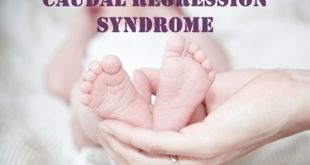

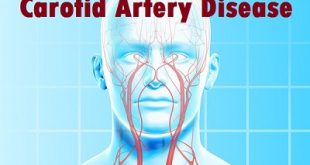
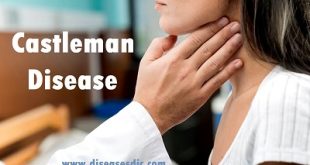
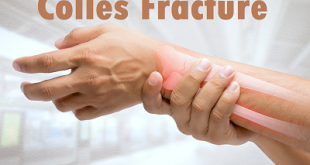
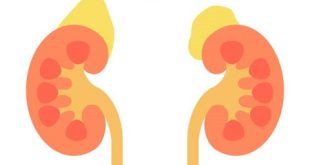
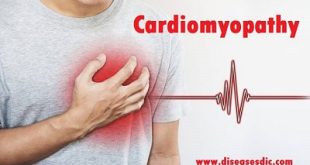

At what age can one be vaccinated to prevent being infected with chicken pox.
Children under 13 years old should get two doses of the chickenpox vaccine at these ages:
1st dose: 12 through 15 months
2nd dose: 4 through 6 years (may be given earlier, if at least three months after the 1st dose)
The second dose may be given at an earlier age if it is given at least three months after the first dose.
People 13 years or older (who have never had chickenpox and never received chickenpox vaccine) should get two doses at least 28 days apart.
does it have any serious effect on the reproductive organs in males? .What serious complications can a pregnant woman experience when affected by chicken pox and which special treatment can be given
-If An Adult Male has chicken pox with a fever, the high temperature could affect his production of sperm as fever with any other illness. However, sperm production should return to normal within about 3 months. In rare cases, the varicella virus can lead to a condition called “orchitis” which could lead to the reduction in the size of the testicles and ultimately affect a man’s sperm production.
-If you are not immune you can be given treatment which may reduce the risk to you and your baby. probably doctor may recommend treatment with VZIG (which is safe for you and baby) as a preventive measure. It’s not yet known whether giving VZIG to a pregnant woman helps protect her fetus from infection.
now this disease I having it for several times since 1999,it goes and it comes once in my life time sometimes I can stay two years but later it will come again,
Please consult a doctor regarding vaccination. Do proper vaccination.
as of the moment am isolated i have chicken pox counting 4days.my doctor prescribed me aciclover,bilastine & hapivir zo.but still its very itchy,i cant control scratching pricking it…is there any other remedy to lessen itchiness coz its super itchy.
Use turmeric powder dissolved water to get rid of the chicken pox.
it’s very reliable and thanks for the info. More power
my kid who is 14yrs old went to sleep at his friends house who the day after he developed chickenpox is he in a risk to get the virus ? i gave him the injection of varilrix when he was 1 but didnt give him another booster at 6 i am very worried thx
It may transfer to your child but it is safe to get tested of your child.
l also experience it close to my penis and it is big what do I do
Please consult a doctor.
the app is so much useful to both local communities and scholars as it is a good source of information.
thanks for this important source of information
Please is the vaccine for both children and adults?
Adults and children ages 12 years and older usually receive a chickenpox vaccine called Varivax, which only prevents chickenpox.